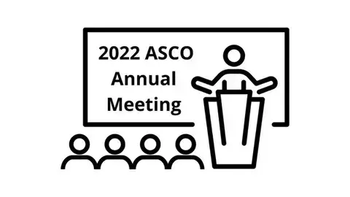
NTRK GENE FUSIONS
Latest News
Latest Videos
More News

Mark A. Socinski, MD provides insight on biomarker testing to identify patients with NTRK gene fusion-positive non–small cell lung cancer.

The FDA has granted approval for an investigational new drug protocol amendment for ABT-101, a mutant selective tyrosine kinase inhibitor which has shown superior selectivity against HER2 exon 20 mutations in NSCLC in preclinical studies.

In an interview with Targeted Oncologyy, David S. Hong, MD, discussed an updated analysis of larotrectinib and the data supporting the agent for the treatment of TRK fusion-positive lung tumors.

David Hong, MD, explains why larotrectinib may be chosen over other TRK inhibitors for the treatment of NTRK fusion-positive lung cancer.

At the 2022 ASCO Annual Meeting, utilizing matching-adjusted indirect comparison, researchers showed the survival benefit of larotrectinib in patients with TRK fusion-positive tumors.

Continued robust quality of life improvement documented in an expanded dataset of patients with TRK fusion cancer treated with larotrectinib are consistent with the rapid onset of clinical benefit and favorable safety profile of larotrectinib in both adult and pediatric patients.

Patients with advanced lung cancer harboring neurotrophic tyrosine receptor kinase gene fusions treated with larotrectinib demonstrated positive efficacy and safety.

Rapid and durable responses continue to be demonstrated with larotrectinib in pediatric patients with tropomyosin receptor kinase fusion-positive cancer.

In patients with TRK fusion central nervous system tumors, treatment with the larotrectinib continues to show rapid and durable response and manageable toxicity.

According to Alexander E. Drilon, MD, larotrectinib, regardless of tumor type in adult and pediatric and adult cancers with an NTRK fusion, can demonstrate very robust responses and durable responses.












































